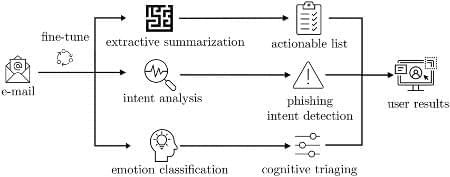Automated HR in the cross-hairs over discrimination law.




Materials scientists aim to develop biomimetic soft robotic crawlers including earthworm-like and inchworm-like crawlers to realize locomotion via in-plane and out-of-plane contractions for a variety of engineering applications. While such devices can show effective motion in confined spaces, it is challenging to miniaturize the concept due to complex and limited actuation. In a new report now published in Science Advances, Qiji Ze and a team of scientists in mechanical engineering and aerospace engineering at Stanford University and the Ohio State University, U.S., described a magnetically actuated, small-scale origami crawler exhibiting in-plane contraction. The team achieved contraction mechanisms via a four-unit Kresling origami assembly to facilitate the motion of an untethered robot with crawling or steering capacity. The crawler overcame large resistances in severely confined spaces due to its magnetically tunable structural stiffness and anisotropy. The setup provided a contraption for drug storage and release with potential to serve as a minimally invasive device in biomedicine.
Navigating complicated terrains
Bioinspired crawling motion shows adaptation to complicated terrains due to its soft deformable dimensions. Researchers aim to engineer crawling for a variety of applications in limited or confined environments, including extraterrestrial exploration, tube inspection, and gastrointestinal endoscopy. Origami provides an appropriate method to generate contraction relative to structural folding, which can be adapted to engineer robotic crawlers. The team described Kresling patterns; a specific type of bioinspired, origami pattern used to generate axial contraction under torque or compressive force, coupled with a twist from the relative rotation of the device units. Ze et al illustrated a magnetically actuated small-scale origami crawler to induce effective in-plane crawling motions. The scientists developed a four-unit Kresling assembly and verified torque distribution on the crawler using finite element analysis to induce motion.

When artificial intelligence systems encounter scenes where objects are not fully visible, they have to make estimations based only on the visible parts of the objects. This partial information leads to detection errors, and large training data is required to correctly recognize such scenes. Now, researchers at the Gwangju Institute of Science and Technology have developed a framework that allows robot vision to detect such objects successfully in the same way that we perceive them.
Robotic vision has come a long way, reaching a level of sophistication with applications in complex and demanding tasks, such as autonomous driving and object manipulation. However, it still struggles to identify individual objects in cluttered scenes where some objects are partially or completely hidden behind others. Typically, when dealing with such scenes, robotic vision systems are trained to identify the occluded object based only on its visible parts. But such training requires large datasets of objects and can be pretty tedious.
Associate Professor Kyoobin Lee and Ph.D. student Seunghyeok Back from the Gwangju Institute of Science and Technology (GIST) in Korea found themselves facing this problem when they were developing an artificial intelligence system to identify and sort objects in cluttered scenes. “We expect a robot to recognize and manipulate objects they have not encountered before or been trained to recognize. In reality, however, we need to manually collect and label data one by one as the generalizability of deep neural networks depends highly on the quality and quantity of the training dataset,” says Mr. Back.

Phishing attacks are cyber-attacks through which criminals trick users into sending them money and sensitive information, or into installing malware on their computer, by sending them deceptive emails or messages. As these attacks have become increasingly widespread, developers have been trying to develop more advanced tools to detect them and protect potential victims.
Researchers at Monash University and CSIRO’s Data61 in Australia have recently developed a machine learning-based approach that could help users to identify phishing emails, so that they don’t inadvertently install malware or send sensitive data to cyber-criminals. This model was introduced in a paper pre-published on arXiv and set to be presented at AsiaCCS 2022, a cyber-security conference.
“We have identified a gap in current phishing research, namely realizing that existing literature focuses on rigorous ‘black and white’ methods to classify whether something is a phishing email or not,” Tingmin (Tina) Wu, one of the researchers who carried out the study, told TechXplore.

Rats afflicted with liver cancer have demonstrated the efficacy of a fascinating, non-invasive treatment.
Using focused ultrasound, scientists have managed to destroy up to 75 percent of the volume of a liver tumor. The treatment also seems to trigger the rats’ immune systems into taking over and clearing the rest.
In 80 percent of the animals, the cancer seemed to be destroyed, with no sign of metastases or recurrence in the three months they were monitored for, the researchers said.

One of the ways we can fully realize the potential of quantum computers is by basing them on both light and matter – this way, information can be stored and processed, but also travel at the speed of light.
Scientists have just taken a step closer to this goal, by successfully producing the largest hybrid particles of light and matter ever created.
These quasiparticles, known as Rydberg polaritons, were made with the help of a piece of stone containing cuprous oxide (Cu2O) crystals from an ancient deposit in Namibia, one of the few places in the world where cuprous oxide has been found in gemstone quality.

The CMS collaboration at the Large Hadron Collider (LHC) has performed the most accurate ever measurement of the mass of the top quark—the heaviest known elementary particle. The latest CMS result estimates the value of the top-quark mass with an accuracy of about 0.22%. The substantial gain in accuracy comes from new analysis methods and improved procedures to consistently and simultaneously treat different uncertainties in the measurement.
The precise knowledge of the top-quark mass is of paramount importance to understand our world at the smallest scale. Knowing this heaviest elementary particle as intimately as possible is crucial because it allows testing of the internal consistency of the mathematical description of all elementary particles, called the Standard Model.
For example, if the masses of the W boson and Higgs boson are known accurately, the top-quark mass can be predicted by the Standard Model. Likewise, using the top-quark and Higgs-boson masses, the W-boson mass can be predicted. Interestingly, despite much progress, the theoretical-physics definition of mass, which has to do with the effect of quantum-physics corrections, is still tough to pin down for the top quark.

Researchers at Dartmouth College have built the world’s first superfluid circuit that uses pairs of ultracold electron-like atoms, according to a study published in Physical Review Letters.
The laboratory test bed gives physicists control over the strength of interactions between atoms, providing a new way to explore the phenomena behind exotic materials such as superconductors.
“Much of modern technology revolves around controlling the flow of electrons around circuits,” said Kevin Wright, assistant professor of physics at Dartmouth and senior researcher of the study. “By using electron-like atoms we can test theories in ways that were not possible before.”

An analysis of the genetic material in the ocean has identified thousands of previously unknown RNA viruses and doubled the number of phyla, or biological groups, of viruses thought to exist, according to a new study our team of researchers has published in the journal Science.
RNA viruses are best known for the diseases they cause in people, ranging from the common cold to COVID-19. They also infect plants and animals important to people.
These viruses carry their genetic information in RNA, rather than DNA. RNA viruses evolve at much quicker rates than DNA viruses do. While scientists have cataloged hundreds of thousands of DNA viruses in their natural ecosystems, RNA viruses have been relatively unstudied.